Iron Deficiency Anemia and Its Role in Your Fatigue
If you’re suffering from a regular loss of energy, it’s tempting to jump to the conclusion that your adrenals are at fault. In some instances, however, the real source of your fatigue may just be a simple lack of iron.

Iron may be a trace mineral, but it is an important one. It has an important role in the body’s hemoglobin, and bears responsibility for transporting oxygen to the tissues of the body during physical exercise and other activity. When it is not present in the body in sufficient levels, a whole host of problems can result. Fatigue is, of course, one of the earliest signs that something is amiss.
Iron Deficiency Anemia
Iron deficiency is a condition that manifests itself in stages, but often times patients fail to realize that they are suffering from the deficit of this mineral until it has already progressed to more serious fatigue. The earliest stage seldom presents the type of serious signs and symptoms most patients need to see before they become alarmed.
In the first stage, the iron reserves end up depleted. Often times, athletes and others attribute any minor loss of physical performance to residual tiredness from exercise or other activities. This neglect usually leads to the condition progressing to the second stage, where the non-anemic stage one deficiency now becomes anemia. In this stage, the amount of hemoglobin in the body decreases as a result of the absence of the iron needed for their production. That leads to decreased oxygen transport to the muscles and tissues.
Untreated, the deficiency will progress to the third stage where your full-blown anemia does its most serious damage. This stage manifests itself as severe exhaustion and an inability to perform many physical tasks. From a medical standpoint, tests would reveal a marked reduction in essential red blood cells.
Iron deficiency anemia can result from a variety of different causes. As a general rule, however, those causes fall into distinct categories: conditions that cause people to need more iron, and a reduced inability to absorb iron properly. The first category includes things like child growth spurts, intense exercise where the body needs more iron to meet its needs, blood loss, and pregnancy. A loss of absorption or reduced intake of iron can be due to eating the wrong kinds of foods, or the overuse of antacids and other medications.
How Anemia Makes You Tired
The explanation for why anemia makes you so tired is simple. As noted previously, the reduction in the amount of iron in your body leaves a deficiency of the very component needed for the formation of the hemoglobin necessary for healthy red blood cells. Since hemoglobin transports oxygen to the body’s cells, any reduction in the hemoglobin count will result in less oxygen being delivered.
That, in turn, leaves less oxygen available for the mitochondrial energy factories within those cells to use as they convert the carbohydrates, proteins, and fats you eat into the ATP (adenosine triphosphate) your body uses as energy. This is where fatigue comes in. Since about ninety percent of the oxygen we breathe in is used in this process of mitochondrial energy conversion, any deficiency in iron and hemoglobin means that the overall amount of energy that can be created is reduced significantly.
What You Can Do to Correct Iron Deficiency Anemia
The good news is that iron deficiency anemia can be addressed using diet, modifications to exercise, and supplements. The first thing you should do, however, is consult with your doctor to obtain a simple test to verify that you actually have this deficiency. This is important, because it can be dangerous to have too much iron in your body too! Once you’ve confirmed the diagnosis, however, the treatment can begin.
Dietary Changes
The great thing about iron is that there are plenty of delicious foods that can provide the mineral. Lean beef and lamb are a good source, as are kidney beans, spinach, even those cooked instant cereal packs. Three ounces of oysters can provide an entire day’s allowance of the mineral! The problem many people may have, however, is in getting their body to absorb the iron that they consume.
To solve that dilemma, try to eat your iron-rich food with other foods high in Vitamin C. This vitamin has properties that enhance the absorption of minerals such as iron, which can help to ensure that you receive the maximum benefits from your iron intake.
Things to Avoid:
If you have anemia, steer clear of coffee, tea, and even dairy products. Tea and coffee contain tannin. Dairy products are high in calcium. Both tannin and calcium have been demonstrated to hinder iron absorption.
For the same reason, stay away from antacids. The last thing you want to do is ingest more iron and then deny your body the ability to actually utilize it!
Exercise Adjustments
If you’re diagnosed with iron deficiency anemia, you may have some people telling you that exercise will only make it worse. They’re half-right. If you exercise at extreme levels of intensity, your body will have greater need for iron. That can make your condition worse. However, you can still exercise if you can rein it in to a more moderate level of intensity. This is especially important for runners and others who focus on endurance training.
Supplementation
Iron supplements are often an important part of any treatment for iron deficiency. Because excessive amounts of iron can damage the liver, it is important to consult with your doctor before adding supplementation to your therapy regimen. He or she can advise you as to the proper doses needed and what your target goals should be.
The conclusion is clear: if you suffer from any degree of iron deficiency anemia, chances are that you’ve already experienced the effects of fatigue. The good news is that you can resolve those iron issues without much difficulty and provide your body the support it needs to regain much of its lost energy.
You might also be interested in:
- Iron supplements for fatigue. https://www.sciencebasedmedicine.org/iron-supplements-for-fatigue/
- Iron deficiency anemia. http://www.mayoclinic.org/diseases-conditions/iron-deficiency-anemia/basics/causes/con-20019327
- When fatigue slows you down: Iron-deficiency anemia. http://www.active.com/articles/when-fatigue-slows-you-down-iron-deficiency-anemia
- Iron and Iron Deficiency. http://www.medicinenet.com/iron_and_iron_deficiency/page8.htm#dietary_sources_of_iron
- Iron Loss Explains Why You're Tired All the Time. http://www.theatlantic.com/health/archive/2012/07/iron-loss-explains-why-youre-tired-all-the-time/259616/


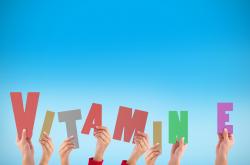
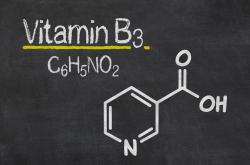
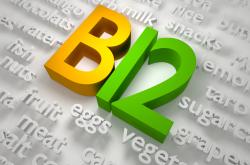

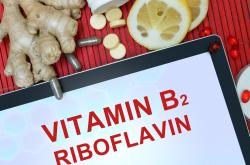


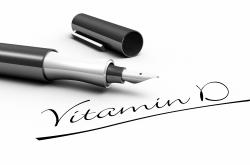









Leave a comment